Ninja made a risky leap of faith last year moving from Twitch to stream exclusively on Mixer after being the platform’s most-watched influencer in 2018 by a long shot.
While there’s no doubt that the contract Mixer gave the headband-wearing, crazy-haired gamer was a lucrative one, so far, Ninja’s Mixer channel has failed to achieve even half the success that his Twitch channel had.
After joining Mixer at the beginning of August, Ninja averaged just 12,036 viewers through the rest of 2019, down significantly from when he was on Twitch. Prior to leaving Twitch, Ninja was averaging three times that viewer count with an average of 36,146, according to data recorded by Stream Hatchet.
From a year-over-year perspective, Ninja’s viewership wasn’t going to improve whether he left Twitch or not. But his average viewership for the last five months of the year also dipped significantly. In 2018, his average viewership was 57,648.
The shortcomings aren’t limited to personal comparisons for Ninja, either. In Q4 this year, there were 126 Twitch channels that averaged more than 10,000 viewers, including esports specific channels. Additionally, there were 26 channels, including 18 personality streamers, who posted more hours watched than Ninja’s 6.5 million during the quarter.
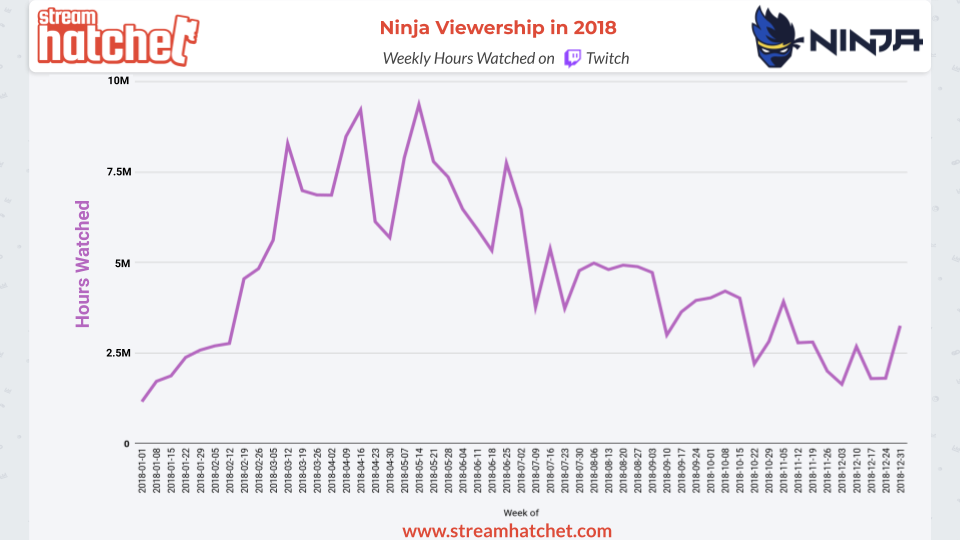
Realistically, though, this decline was expected. There was a small chance, if any, that Ninja would leave Twitch, the most prominent gaming-endemic streaming platform, and somehow get more viewers. That’s not what the move was about.
Sure, Ninja’s average viewership declined, but so did his airtime. Over the last five months of the year, Ninja streamed 475 fewer hours than he did during the same period last year.
The drop in airtime might seem strange for a streamer who made sure to have “20K” added to the custom pair of shoes he made in collaboration with Adidas to represent the number of hours he spent streaming before he made it big. But it’s not about the streaming as much anymore for Ninja. He’s become more than just a streamer and been able to reach a much broader audience than most video game influencers by earning high-profile sponsorships that give major exposure and made several appearances on popular TV shows and YouTube series.
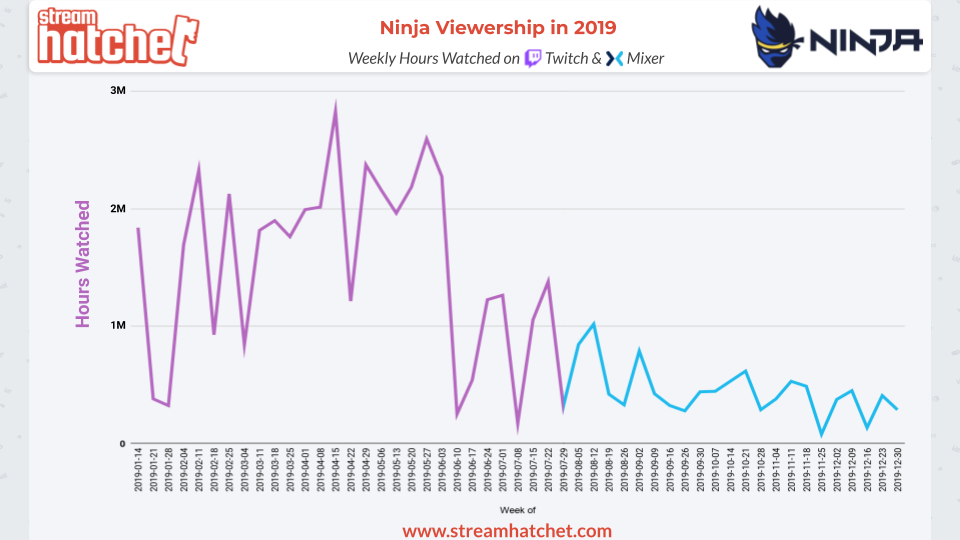
Over the course of the past two years, Ninja’s endorsement portfolio has grown into one of the most expansive of any influencer. In the summer of 2018, he partnered with companies like Red Bull, PSD Underwear, and Uber Eats.
This year, those partnerships have grown further into the realm of non-endemic brands including Adidas and Samsung. With Samsung, he’s appeared in multiple nationally broadcast commercials and he recently released a custom pair of shoes with Adidas that sold out almost immediately.
In 2018, he broke the mold for influencers with appearances on “The Ellen DeGeneres Show” and “The Tonight Show Starring Jimmy Fallon.” But since then, he’s furthered his presence in the mainstream eye by going on Fallon’s show for a second time and doing YouTube appearances in series like “Cold as Balls” with Kevin Hart and Bon Appétit’s “Back-to-Back Chef.”
While Ninja isn’t getting the same level of viewership he once was, he’s still as influential as ever. In fact, research released by Twitter showed that in 2019, Ninja was the most talked about personality in gaming on the social media platform. And to kick off 2020, he even became the first content creator to get his own customized Fortnite skin.
So perhaps obsessing over the numbers and day-to-day audience of someone at the level of Ninja isn’t necessarily the most effective way to evaluate his reach as an influencer. Ninja’s deal with Mixer could be providing him with a certain level of flexibility that makes his growth about more than just grinding out hours and hours of Fortnite on stream.
Without knowing the exact terms of his deals with various sponsors or his deal with Mixer, it’s impossible to tell exactly what sort of change he’s had to his income in the past year. But it’s becoming more and more apparent that Ninja is evolving into more of an influential figure as opposed to simply being a content creator.


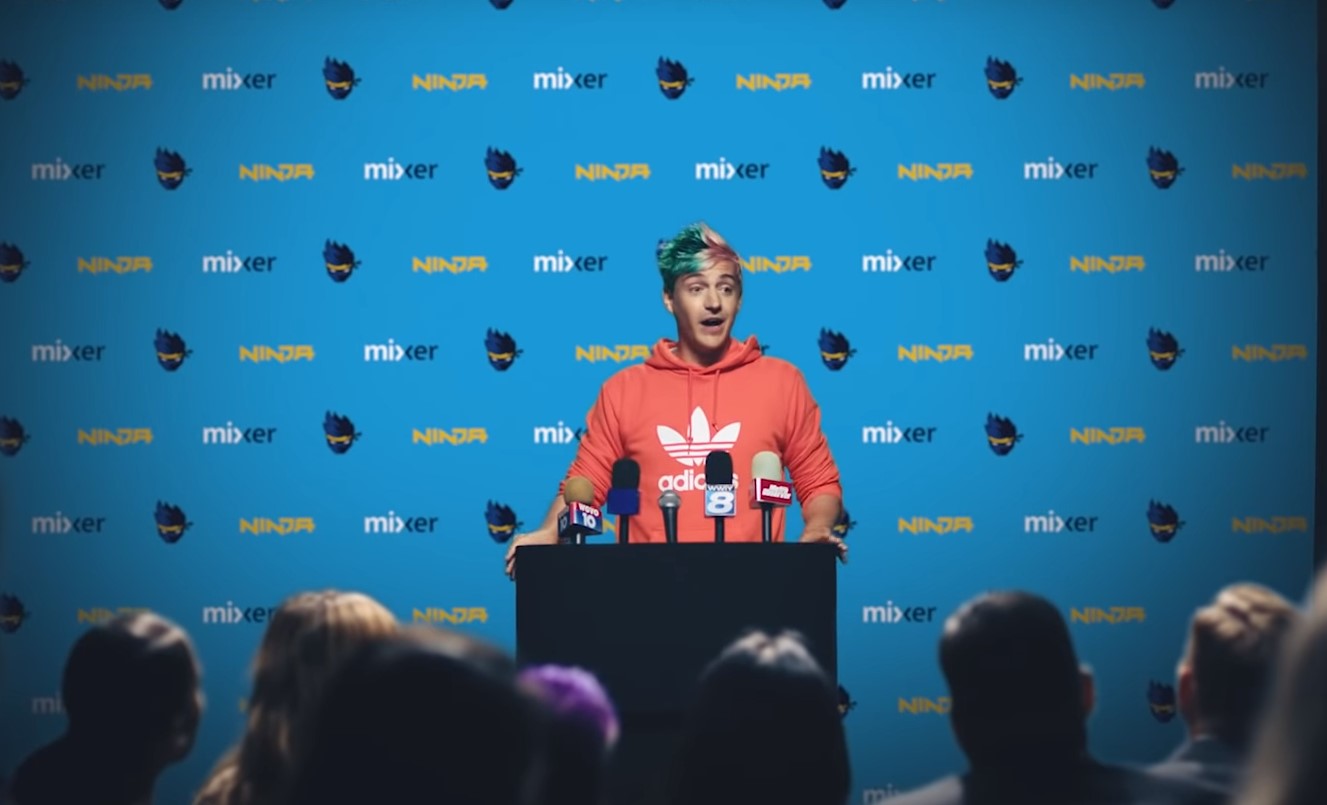


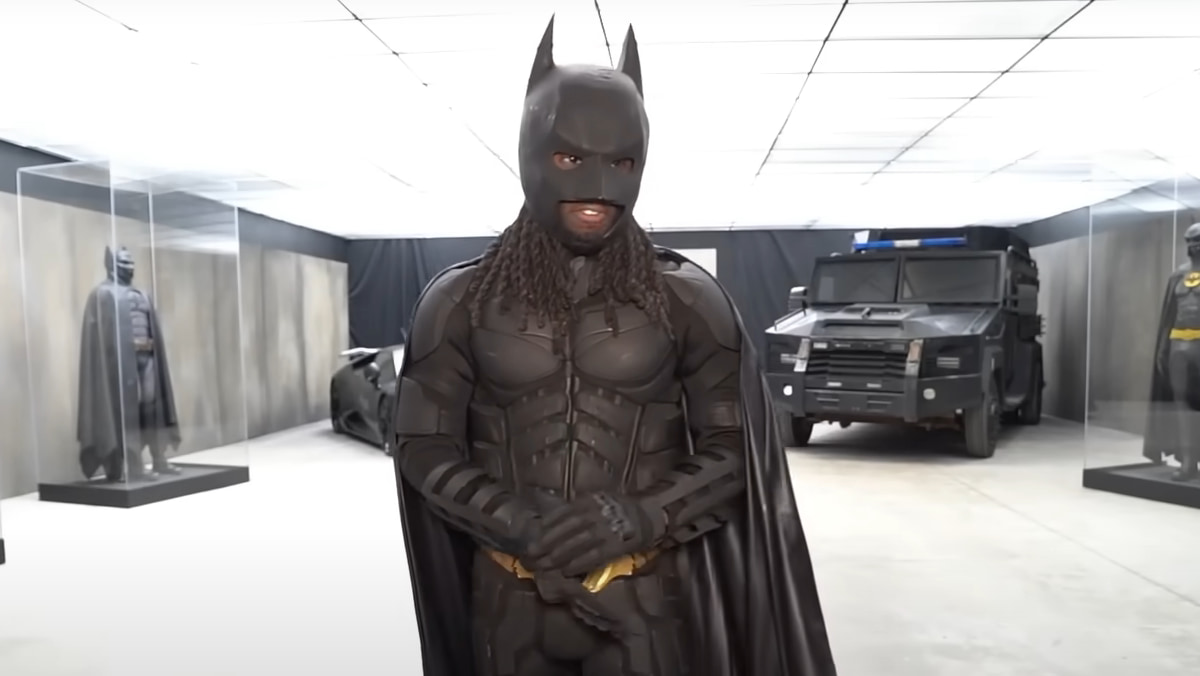

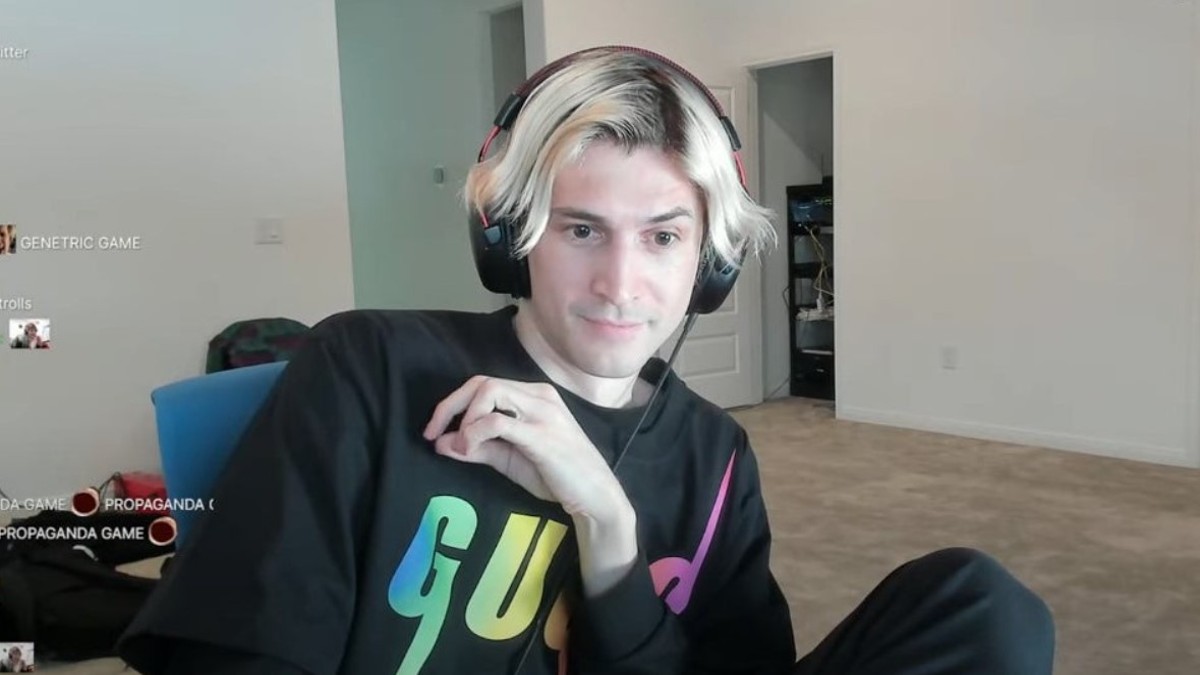
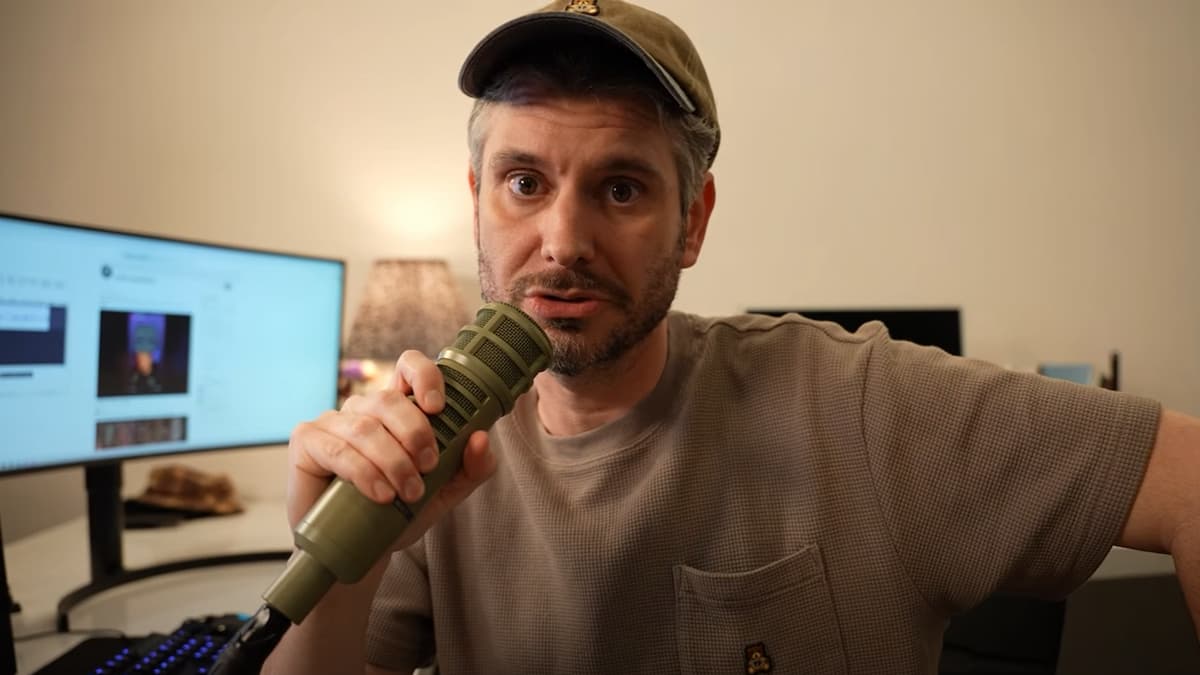

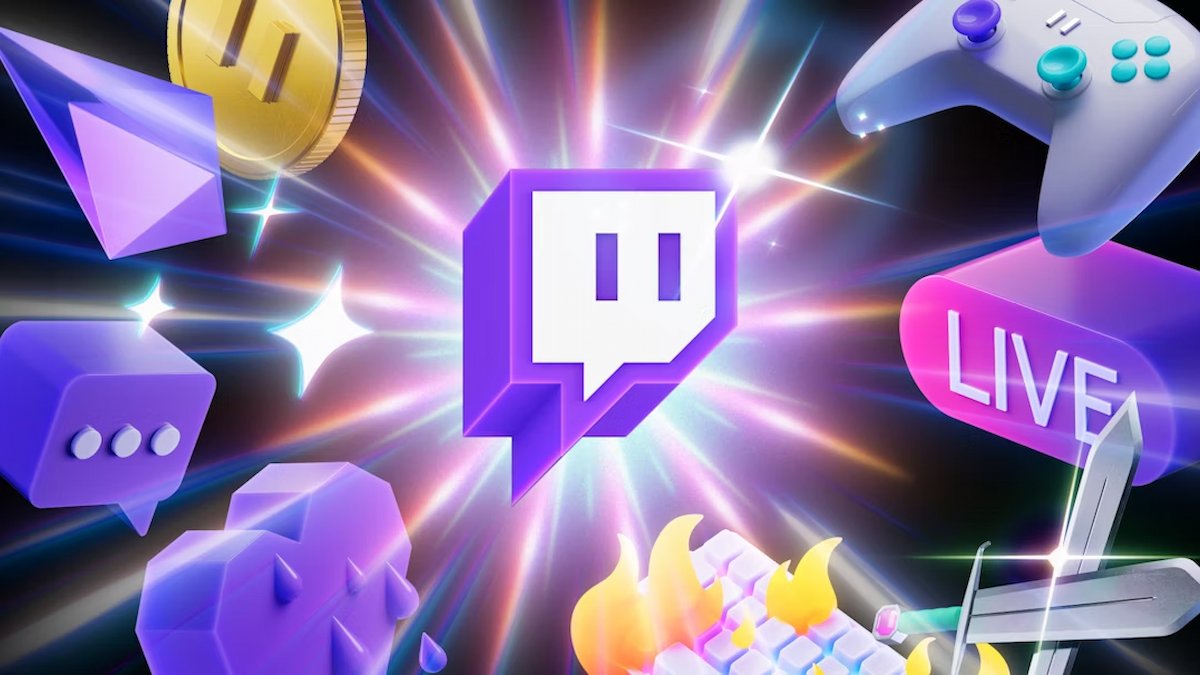

Published: Jan 28, 2020 05:07 pm